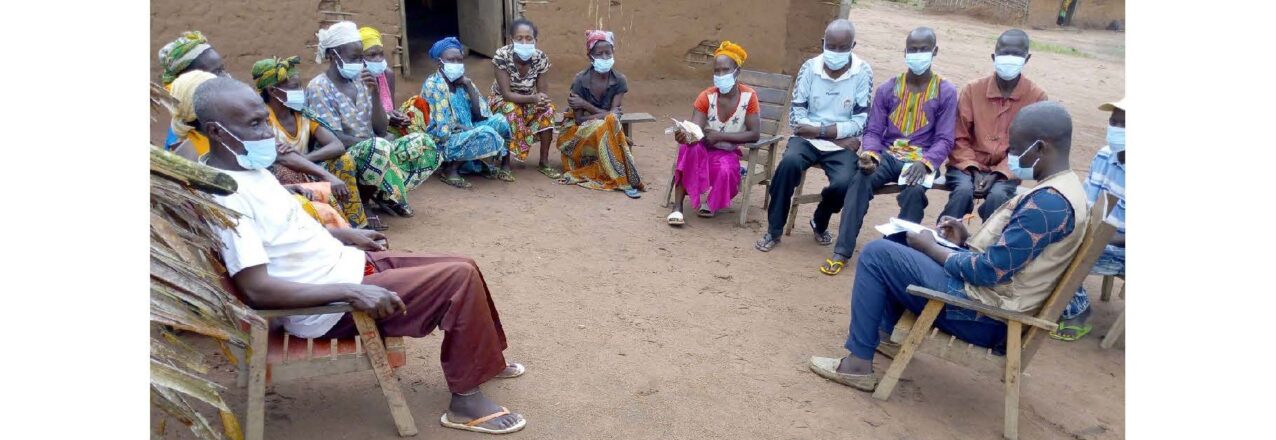AMPR supports the USAID’s Land and Resource Governance Office and the USAID DRC Mission Central Africa Program in improving land and resource governance and strengthening property rights for all members of society, especially women. It serves as USAID’s vehicle for addressing complex land and resource issues around ASM in a multidisciplinary fashion with a focus on diamonds and, to a lesser extent, gold production in the CAR. The project also provides targeted technical assistance to other USAID missions and OUs in addressing land and resource governance issues within the ASM sector. The project builds upon activities and lessons from the PRADD I and II projects. The AMPR contract was signed on September 28, 2018 and will run for five years (the two option years were approved in 2020).
Some highlights from Year 3 include:
- Work Plan Advancements in the Face of Crisis: The AMPR team carried out the vast majority of work plan activities (88%) successfully by the end of the year despite the continued impacts of the COVID-19 pandemic, widespread insecurity following the December 2020 CAR presidential elections, treacherous road conditions, and day-to-day challenges such as the recurring lack of running water in the office. Details of project implementation successes are described below, as well as efforts to mitigate these challenges and minimize their impact on project implementation.
- Strong Coordination with Government of CAR (GoCAR) Partners: AMPR has continued strong coordination with the Ministry of Mines and Geology (MMG) and other GoCAR partners. AMPR successfully coordinated with the MMG Director General to present technical documents to the Minister of Mines and Geology to issue a decree creating Société Centrafricaine d’Exploitation Diamantifère (SCED)-Ndéléngué pilot ZEA in Nola subprefecture. The project has also provided extensive support to the MMG’s efforts to revise the Mining Code and supported the Ministry of Humanitarian Action, Solidarity and National Reconciliation (MHASNR) to establish and officially install six additional CLPRs in Boda and Boganangone sub-prefectures. Most recently, the project has collaborated with the Ministry for the Promotion of Women, Family and the Protection of Children (MPFFPE) to develop its strategy for the rollout of the Gender Innovation Fund planned for Year 4.
- Implementation of Livelihoods Activities with Women’s and Mixed Gender Groups: Local subcontractor Association of Women for the Promotion of Entrepreneurship (AFPE) completed its contract in September 2021, under which they trained 21 women’s and mixed-gender livelihoods groups on agricultural production, artisanal soapmaking, village savings and loans, and basic literacy. As a result of their gardens and savings schemes, many groups were able to reinvest in their entrepreneurial activities and communities. For the local members, the generated savings and credit offerings is the only way to amass enough funds internally to offer a substantial loan to members through a tightly knit rotating saving and loan system independent of the formal—and in rural CAR, nonexistent—banking system.
- Pastoralism and Conflict: Building on the Concordis International field research last year, an Issue Brief summarizing the state of knowledge about pastoralism and conflict along with multiple programmatic recommendations was prepared and widely disseminated. This fed into the State Department Working Group on Pastoralism and then it led to a series of webinars with the US Embassy and coalitions of international non-governmental actors around integrated and multi-scale policies needed to address the root causes of pastoralism related conflicts.
- CAR Mining Code Review: AMPR prepared a detailed technical note with 50 key recommendations on CAR’s Mining Code. The note that focuses on the organization of the ASM sector; best practices for supply chain transparency and good governance; and the promotion of social cohesion and local development was presented to the Mining Code review committee during a full day’s workshop. The committee integrated about 80% of the recommendations into the new Mining Code draft.
- Green Economy and Critical Minerals: AMPR’s Technical Deputy and two consultants prepared an in-depth analytical paper on the impact in USAID-presence countries of critical minerals needed in the rapidly expanding new Green Economy, and especially in the battery sector needed for electric vehicles.


